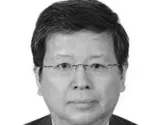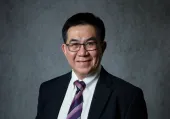What you must know about financial reforms in Taiwan
By Eugene Chen 陳仲漁Financial reform is part of political reform and looks like to be a continuous effort of Taiwanese government. However, the idea disclosed by its Finance Minister on the local newspaper recently encouraging a kind of "public to public banks merge" seems debatable.
Before commenting on it, let's look at what has been done in the past.
The twice reforms initiated by Chen Shui Bian regime(2001 -2008) were ended with one success and one failure. The first success was tagged as "policy 258" which means to reduce % of non-perform loans down to less than 5% with capital ratio above 8% within 2 years.It was nearly completed by all banks except a few deep trouble ones following the guidance of Finance Ministry.
The second reform was however ended with serious scandals some of which still pending till today. Obviously, the second reform of "limited quantity under limited time frame"to reduce the banks numbers within limited time was a failure.
Apart from the scandals , the disappearance of some important banks designated with special mission ,such as Chaio-Tung Bank ,a state-owned development bank ,merged with a commercial bank (ICBC then now called Mega Bank) has drastically reduced the financial capacity of the government to lead and drive the economy of the country.
Coincidentally, another development bank,China Industrial Development Bank (CIDB) which has played an extrodinary role as a venture capital provider for players in electronic industry in the 90s was sold to a private commercial bank. This further reduced the momentum of economic growth and strongly affected the industrial development of Taiwan.
As a whole, after the second reform the country lost tremendous power of execution to the policy of economic development which has successful records from changing infrastructure to upgrading the country's export industries ranging from agriculture, textile,petrochemical,machinery to electronics industry in the past few decades.
We have seen that development banks are economic locomotives when the leaders are aggressive. They still are important catalysts or lubricants when leaders are less enthusiastic in developing economy while commercial banks simply can not fit in achieving target of long term economic policy due to its focus on short term interest.
This may further explain why all financial institutions ,either public or private owned, have little difference from each other nowadays since their missions are overtaken by profit chasing. And it is easy to tell that the government will be more and more difficult to direct the economic development or cultivating certain industries the ways used to be.
Given that, we are not too pessimistic about the future financial reform since it may heavily rely on the investment in data collection and solutions processing of which Taiwan has competeting edge. With cloud technology and the research capability, commercial banks should be able to find out ways to upgrading services for the people but as far as economic development is concerned ,special financial institutions are still needed.
Under such circumstance, if the Taiwanese finance minister still insists that reform has to go from merging state-owned banks without thinking about the economic development as a whole , it will be still within the scope of second reform .The real reform may take longer time to come.














 Advertise
Advertise










